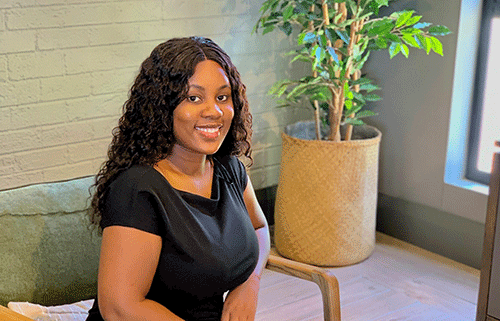Umunee Matundu
I do not think anyone spends their day-to-day life thinking deeply about the concept of wellness, let alone amid all our busy schedules. Our lives usually include an attempt at balancing careers, family commitments, relationships, and finances amongst other factors. Quite frankly the list is endless.
In the same light, if we neglect habits that help us live well, our bodies keep record and have a way of reminding us of when we are off balance. Research further indicates that paying attention to those cues which may present as burnout, moodiness, or chronic fatigue – is often the beginning of the journey to a healthier version of oneself.
In 2020, the Covid-19 pandemic altered our day-to-day lives and left us very much aware of just how fragile everything can be, and we have had to learn about the intentionality required to keep ourselves in a state of sanity.
For many of us, when we think of health- we primarily consider physical well-being and most recently we have become more involved in understanding mental health, not only for ourselves but how it impacts those around us as well.
However, what if I told you that there is more, and you can easily find ways to incorporate holistic wellness into your everyday life?
Wellness is broadly described as actively pursuing and cultivating activities, choices, and lifestyle habits that lead to holistic health. Health extends to your body, mind, and soul. To cultivate wellness, one needs to get various aspects of your life to work in harmony, while simultaneously recognizing that your behaviours, together with the social and physical environments you expose yourself to largely impact your wellness goals.
Holistic wellness can be divided into five pillars, which makes it practical and easier to manage daily. The pillars include:
Physical wellness – refers to nourishing the body through exercising, nutrition, and prioritising adequate sleep. The key is finding a way to move your body in a manner that feels right and manageable for you and fits well into the natural flow of your life. It can include running, taking long walks, and joining a boot camp or gym. In fact, there are various options and all can be effective.
Mental & emotional wellness– is being aware of your feelings, thoughts, and emotions and being able to engage them through problem-solving, creativity, awareness, acceptance, and taking time to express them as opposed to suppressing them.
Relational wellness – involves being aware of how we connect to those around us and building relationships. No man is an island, we need others as much as others need us. Part of being in healthy relationships includes cultivating a firm foundation built on mutual trust, shared values, support, and honesty in how we communicate about what matters to us. Contrary to popular belief people are not mind readers, and a large part of fulfilling relationships includes openly advocating for what you need through communication and being teachable.
Spiritual wellness – has little to do with what beliefs you identify with and more to do with cultivating & discovering ways to tend to your inner being through practices such as connectivity, stillness, purpose, and finding ways in which you can replenish your soul on a regular basis.
Financial wellness – refers to the relationship we have with our money. Everything from how we feel about money and the ways in which we manage it. For many finances can be a sensitive conversation. However, because money impacts our lifestyles directly- a regular audit of where we are financially is key. It involves considering spending habits, prospects of savings and means to grow our sources of income.
As with any lifestyle changes you may wish to adopt, it is always advised that you take bits and pieces to find what works for your life as it is now. Wellness is valuable, however, what is even more valuable is being able to know what works for you as opposed to following trends aimlessly.
For instance, I have come to know we do not all need to become marathon runners to attain physical health. For you, it may be daily 10-minute walks as a starting point, and that in itself will compound towards improving your overall health.
Everything in life is progressive, and when we find that something no longer works, I invite you to get comfortable changing your mind until you find what does.
* Umunee Matundu is a lawyer, speaker, life coach and the founder of Super Soul Care, an online wellness community through which she has supported over 100 clients in their self-development journey since 2021.


